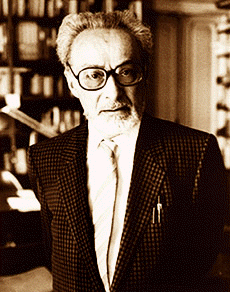by Sergio Luzzatto
No other Auschwitz survivor has been as literately powerful and historically influential as Primo Levi. Yet Levi was not only a victim or a witness. In the fall of 1943, at the very start of the Italian Resistance, he was a fighter, participating in the first attempts to launch guerrilla warfare against occupying Nazi forces. Those three months have been largely overlooked by Levi’s biographers; indeed, they went strikingly unmentioned by Levi himself. For the rest of his life he barely acknowledged that autumn in the Alps. But an obscure passage in Levi’s The Periodic Table hints that his deportation to Auschwitz was linked directly to an incident from that time: “an ugly secret” that had made him give up the struggle, “extinguishing all will to resist, indeed to live.”
What did Levi mean by those dramatic lines? Using extensive archival research, Sergio Luzzatto’s groundbreaking Primo Levi’s Resistance reconstructs the events of 1943 in vivid detail. Just days before Levi was captured, Sergio Luzzatto shows, his group summarily executed two teenagers who had sought to join the partisans, deciding the boys were reckless and couldn’t be trusted. The brutal episode has been shrouded in silence, but its repercussions would shape Levi’s life.

Image is in the public domain via cWikimedia.com
Combining investigative flair with profound empathy, Primo Levi’s Resistance offers startling insight into the origins of the moral complexity that runs through the work of Primo Levi himself.
A Q&A with Sergio Luzzato
To what do you credit your “powerful curiosity,” verging on obsession, about Primo Levi and the Italian Resistance in World War II?
Such a powerful curiosity is only natural. The Italian Resistance is the founding event of modern Italy as a free and democratic state. And Primo Levi is an extraordinarily thoughtful interpreter of the heart of darkness of the twentieth century. I was therefore obsessed first and foremost as a citizen, then as a historian. But I trust that my obsession was not pathological. I would rather refer to the Latin origins of “obsession”: an idea or image that occupies the mind, and goes as far as laying siege to it.
Why do you think Levi chose not to disclose more details about his brief participation in the Italian Resistance in his autobiographical works? And what alerted you to the particular importance of those four pages in The Periodic Table where Levi describes his time in the Resistance?
I think that Levi did not share more about his experience because he wasn’t able to look at the Resistance the same way as he looked at the Holocaust. He wasn’t able to look at that side of twentieth century history through the scientist’s lens—to filter, gauge, distill, as chemists do—rather than through that of a humanist.
It is this different approach and tone, and his different attention and intention, that alerted me to those four pages in The Periodic Table. How is it, I asked myself, that when Levi talks or writes about the Resistance he is so different from the Levi we know, so much so that he almost seems to be another person?
Did you expect the controversy that followed the Italian publication of this book? How did you handle that?
To be honest, I expected it. I expected controversy around the Resistance, given that when Italians reflects on their twentieth century past, they rely so often on myth rather than on reality. People want to see only virtues on the side of the partisans, only absolute evil on the other side. I also expected controversy around Primo Levi, since he too is so often regarded as a kind of saint rather than a human being.
How did I react? I was disappointed by the accusations. But I believe it is the historian’s job to expand our knowledge, to illuminate what actually happened. Treating the partisans not as abstract heroes but as real people honestly struggling to do the right thing is the best way to honor their memory.
Your personal passion for the subject matter adds so much to this history. How did your personal engagement with the material affect your research?
This research particularly affected me since the subject matter—the Italian Resistance and Primo Levi—are the two poles of my moral and civic world. But this passion notwithstanding, I hope (and trust) that I was able to maintain sufficient critical distance as befits a historian.
What are the biggest misconceptions about Primo Levi’s life and legacy?
The biggest misconception about Primo Levi’s life concerns his status as a survivor. Until I published my book, Primo Levi was only seen as a survivor of Auschwitz. This was somewhat understandable, given the exceptional historical relevance of the Holocaust and the exceptional role of Levi as a writer and as a witness. Yet Levi was also, whether he liked it or not, a survivor of Amay, the tiny village in the Italian Alps where he tried to fight his Resistance. That partisan experience left deep scars on his identity, I believe.
The worst misconception about Primo Levi’s legacy, in my view, is of those who believe that the Levi monument must be “defended” against the attacks of an alleged vandal of memory posing as a historian. Whereas I think that the best way to pay tribute to him consists in carrying out the unceasing, necessary, inexhaustible work of research. This is one of his many lessons. A search for meaning, if not for precision; and a search for truth, if not for justice.
Sergio Luzzatto is the author of Primo Levi’s Resistance: Rebels and Collaborators in Occupied Italy, Padre Pio: Miracles and Politics in a Secular Age, which won the prestigious Cundill Prize in History, and of The Body of Il Duce: Mussolini’s Corpse and the Fortunes of Italy. A professor of history at the University of Turin, Luzzatto is a regular contributor to Il Sole 24 Ore.
